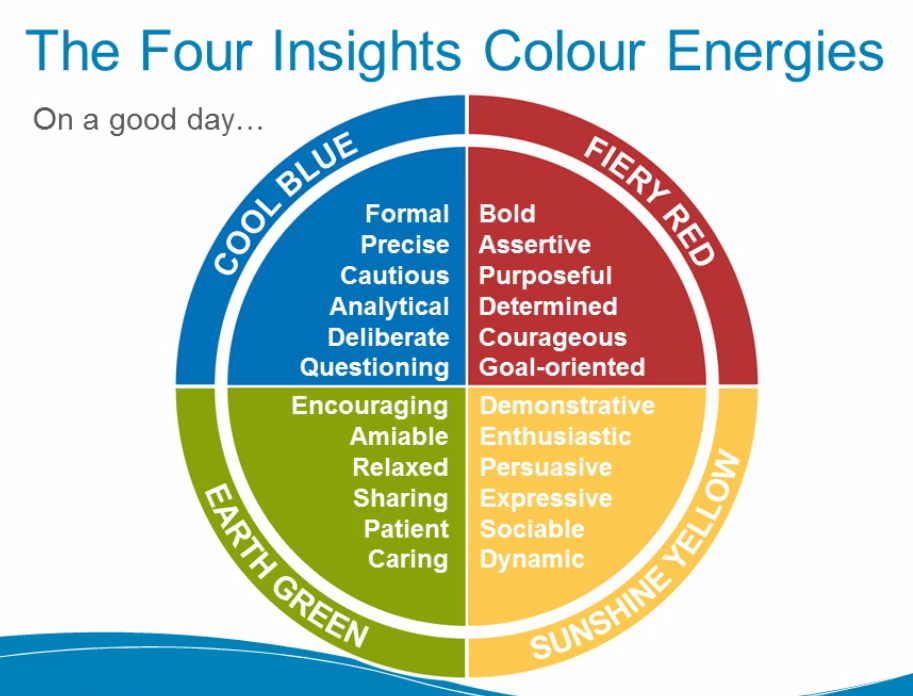Most are made up and silly.
The only one I’ve liked was in college I did a “communication style” one. Where it showed a bunch of different like emails, posts, and conversations and asked which you preferred to receive and which you were likely to write.

10 years later I still think about it, cause the goal of the work was to talk about how if you’re a certain communication style what to keep in mind with communicating with others. Like tips to not get frustrated with yellows who don’t care about facts when sending emails and how to write emails that don’t bore and frustrate people if you’re blue. (I’m blue green. I can sometimes write long emails)
I thought about it the other day cause a guy was complaining about all these emails that didn’t seem to say anything, they were just about feeling good, and he just wanted them to spit it out. Which corresponded to firey red getting mad at green.
So with that context, do you have any that actually had an impact on you?


I really got a lot out of the Myres Briggs when I was younger. I know its not scientifically valid, and it’s stupid of folks take it too seriously, but it really helped young me understand that other people weren’t wrong/dumb/weird for approaching things differently. And it helped me understand some of the axis on which difference can lie in a helpful way.
I think in the post internet age people are very aware of different categories and identities, but growing up in the previous millenium it wasn’t something that we talked about much. The introvert / extrovert division is overblown and overly simplistic nowadays, but before people use to just criticise each other for being “too shy” or “too loud” like there was a “normal” way to be that everyone should get.
The big five is certainly more reliable and scientifically supported, but I never found that it helped me understand a coworker or friend better. Partly I think conscientiousness and neuroticism sound a little too value laden. People can happily self describe as “detail orientated” (Sensing) or “big picture types” (Intuitive) but nobody really wants to say “I’m closed-off and unconscientious”. And I think that’s why MB has been popular in business / organisation worlds, because it’s a useful way to get people discussing themselves and how they approach problems. It doesn’t matter that in reality my level of extraversion varies depending on the context, or I’m Judging in certain tasks but Perceiving in others.